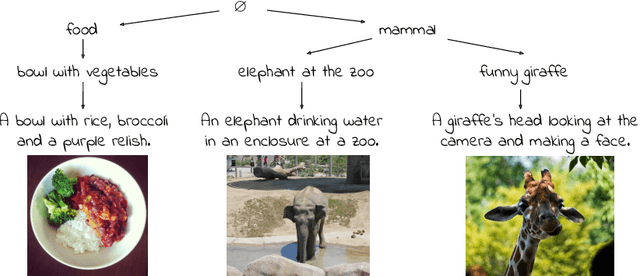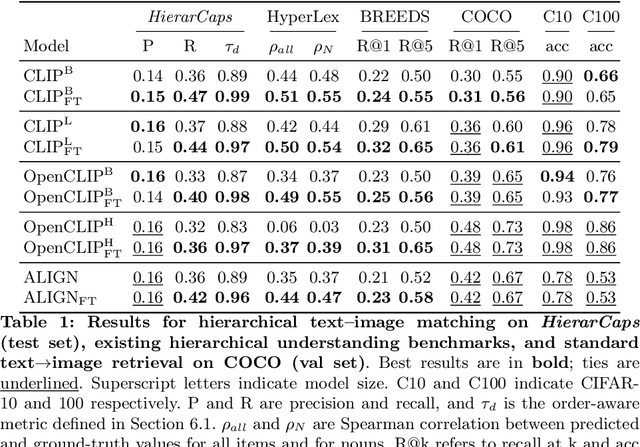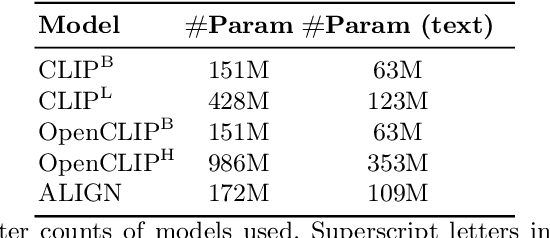Emergent Visual-Semantic Hierarchies in Image-Text Representations
Paper and Code
Jul 11, 2024



While recent vision-and-language models (VLMs) like CLIP are a powerful tool for analyzing text and images in a shared semantic space, they do not explicitly model the hierarchical nature of the set of texts which may describe an image. Conversely, existing multimodal hierarchical representation learning methods require costly training from scratch, failing to leverage the knowledge encoded by state-of-the-art multimodal foundation models. In this work, we study the knowledge of existing foundation models, finding that they exhibit emergent understanding of visual-semantic hierarchies despite not being directly trained for this purpose. We propose the Radial Embedding (RE) framework for probing and optimizing hierarchical understanding, and contribute the HierarCaps dataset, a benchmark facilitating the study of hierarchical knowledge in image--text representations, constructed automatically via large language models. Our results show that foundation VLMs exhibit zero-shot hierarchical understanding, surpassing the performance of prior models explicitly designed for this purpose. Furthermore, we show that foundation models may be better aligned to hierarchical reasoning via a text-only fine-tuning phase, while retaining pretraining knowledge.
 Add to Chrome
Add to Chrome Add to Firefox
Add to Firefox Add to Edge
Add to Edge